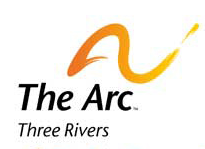In September 1951, Kanawha County established the first classroom for training the mentally retarded at Tiskelwah School. Twelve children began what was to be the beginning of new challenges and endeavors.
The parents and friends of these children organized the Kanawha Council for the Mentally Retarded (K.C.P.C.), incorporating in August 1952. Within twenty years there were eight (8} training classrooms and forty (40) educational classrooms in Kanawha County and eleven (11) educational classrooms in Putnam County.
In 1964, K.C.P.C. passed a resolution that Faith Workshop would become a part of the organization and acquired funds from United Fund to make this goal achievable. Faith Workshop became an affiliate of Shawnee Hills Regional Center in 1976.
In 1966 K.C.P.C. changed its name to Kanawha Association for Retarded Children (KARC), Inc. During the next few years, the Agency set long-term goals of developing residential facilities, summer day camp, and year round recreational activities for youth with intellectual and other developmental disabilities, including Special Olympics.
1969 was a landmark year in West Virginia for persons with intellectual and other developmental disabilities with the passage of the “Mandatory Special Education Act” for Exceptional Children. Through the active participation of association members and other interested civic organizations, children with intellectual and other developmental disabilities were guaranteed the right to an education.
Legislation was passed in 1972 providing a statewide central mental health complex plus fourteen regional mental health complexes, and eight regional mental retardation centers. KARG agreed to furnish a portion of the local matching funds for the regional persons with intellectual and other developmental disabilities center which would serve Kanawha and Putnam Counties.
In 1974 the name of the association was broadened and became Kanawha Putnam Association for Retarded Citizens (K-PARC). The membership was a staggering 323 members.
An Advisory Council for Exceptional Children was established by Kanawha County Schools and K-PARC became a permanent voting member on the Council.
In 1975, Shawnee Hills Regional Center (SHRC), through the efforts of K PARC and many other organizations opened its doors and created yet another new dimension in educating children with severe and profound intellectual and other developmental disabilities . The long-term goal of the first group home became a reality with SHRC operating the home located in North Charleston. K-PARC worked diligently with SHRC to coordinate program development, recreational programs and on-the-job training.
Between 1975 and 1988, K-PARC was known as an active statewide advocate for persons with intellectual and other developmental disabilities and their quest to live as independently as possible. Case Management services through these important years were a vital part of the Agency.
In 1988, K-PARC opened its own Group Home for four {4) adult men located in Dunbar.
At the National Arc Convention in Portland, Oregon in October of 1991, another milestone was passed . The national membership voted on yet another name change for our organization . Many persons felt that our name placed a label on persons with intellectual and other developmental disabilities. With the new name change, we erased the stigma and included all persons with intellectual and other developmental disabilities. After long debates about our mission, the delegates representing the nationwide members voted to change the name to simply “The Arc’· allowing local and state chapters to form their own tag line. We chose the following: The Arc Advocates for the Rights of Citizens with Developmental Disabilities.
Since 1991, The Arc in Kanawha and Putnam Counties has expanded drastically. Our list of the people we serve continues to grow and services continue to increase. Services include individual and class advocacy, case management, financial management, individual and family counseling, behavior management, crisis intervention, family services, information and referral, sexuality training, group home services, case aide assistance and Medley Advocacy.
In 1997 the Agency started to participate in Title XIX Medical Waiver Home and Community Program. The Waiver Program is for individuals with mental retardation and other related developmental disabilities. It is a federal and state funded Medicaid Program designed to deliver services to clients in their home and community as an alternative to receiving services in an Intermediate Care Facility for individuals with Mental Retardation and Related Conditions. The Program is a training program that reimburses for services to instrucUtrain, support and assist intellectual and developmentally disabled individuals to achieve the highest level of independence and self-sufficiency as possible.
In May 2002, the Board of Directors changed the name of the agency from the Arc of Kanawha Putnam County to The Arc of The Three Rivers. This change was made to accommodate the broadening of service areas from Kanawha and Putnam Counties to Boone, Clay, Kanawha, and Putnam Counties. Thebroadening of service areas was brought about by the closure of Shawnee Hills and assimilation of the people served by Shawnee Hills.
The Arc of The Three Rivers boldly became a comprehensive service provider to those with intellectual and developmental disabilities with the assimilation many of the persons formerly served by Shawnee Hills. The status of becoming a comprehensive provider required the Agency to increase staff, relocate to larger facilities, and increased the case load dramatically. Currently, The Arc employes over 200 people. Along with the increase in people served and staff, the complexity of services increased from mere small level services such as a Group Home, short hours of residential care and job coaching to on-site Day Hab itation, 24 hour services, supportive employment, and personal care. This increase in services necessitated a change from employing a few professional staff members to meeting the Professional requirement of staffing for full case management, Job Coaching, Therapeutic Consultant services, Registered Nursing, Licensed Practical Nursing, and a large contingency of employment and field support staff. Currently, The Arc of The Three Rivers provides services to 200 persons and 340 Representative Payee people served. The Arc continues to meet those with intellectual and developmental disabilities while assimilating new people served from other provider agencies that have closed.
Aside from the major change in the poster of the Agency, the funding base for the Agency changed from receiving partial funding from the Department of Health and Human Resources to becoming a full service provider for those with intellectual and developmental disabilities receiving funding through reimbursements for the services we provide. The Arc of The Three Rivers, Inc. is a non-profit organization incorporated under the laws of West Virginia. Its programs are being presented with such financial assistance as a grant from West Virginia Department of Health and Human Resources.
The Board of Directors is composed of volunteers from the community is an active part in the organizational structure of the Arc and we actively seek dedicated individuals to serve on the Board.


